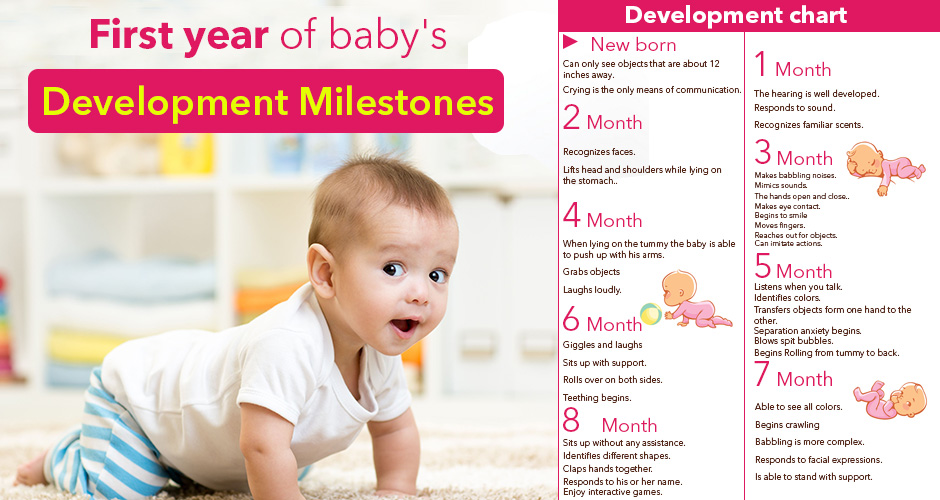 Source: bing.com
Source: bing.comCongratulations on your new bundle of joy! Your 1-month-old baby is now starting to develop and grow at an incredible rate. During this time, you can expect to see a lot of changes in your little one’s behavior, movements, and sleep patterns. In this article, we will discuss the various milestones and developments that you can expect from your 1-month-old baby.
Table of Contents
Physical Development
By the one-month mark, your baby has likely gained weight and grown in length since birth. On average, babies gain about 1.5 to 2 pounds per month during this first year, so don’t be surprised if your little one feels heavier and looks a little longer than they did a few weeks ago. At this stage, your baby’s head will also appear to be more proportional to their body size.
At one month old, your baby’s movements will be limited to reflexes, such as rooting (turning their head towards something that touches their cheek), sucking, and grasping. Don’t worry if your baby doesn’t seem to have much control over their movements yet. It takes time for their muscles to develop and for them to gain more control over their body.
Cognitive Development
At one month old, your baby is still learning how to interpret and respond to the world around them. They’re starting to understand the difference between light and dark and can fix their gaze on objects that are close to their face. They’re also developing their sense of smell, touch, and taste, and may start to recognize familiar scents, like your breast milk, and voices.
Another important aspect of cognitive development at this age is bonding. Your baby is starting to recognize and respond to your voice, touch, and smell, and will feel comforted by your presence. Talk, sing, and cuddle with your baby as much as possible to help build a strong bond and promote healthy development.
Sleep Patterns
At one month old, your baby’s sleep patterns may still be unpredictable. Some babies sleep for several hours at a time, while others may wake up every hour or two to feed. Try to establish a consistent sleep routine, such as a bath, feeding, and lullaby before bed, to help your baby learn when it’s time to sleep.
Remember that newborns need a lot of sleep – anywhere from 14 to 17 hours per day. Try to let your baby sleep as much as they need, even if it means adjusting your schedule to work around their sleep patterns. As your baby gets older, they will gradually start sleeping for longer stretches at a time.
Feeding
At one month old, your baby will likely be feeding every 2-3 hours, or as often as they need to. Whether you’re breastfeeding or formula-feeding, it’s important to make sure your baby is getting enough to eat. Look for signs that your baby is hungry, such as rooting, sucking on their fists, or making smacking noises.
If you have concerns about your baby’s feeding habits or weight gain, talk to your pediatrician. They can help you determine if your baby is getting enough to eat and provide advice on how to address any feeding issues.
Conclusion
Your 1-month-old baby is growing and developing at a rapid pace, and it can be exciting (and overwhelming) to watch. Remember to give your baby plenty of love, cuddles, and attention, and don’t hesitate to reach out to your pediatrician if you have any concerns about your baby’s health or development.
Frequently Asked Questions
Q: When should my baby start lifting their head?
A: Your baby may start lifting their head briefly during tummy time at around 1-2 months old, but it can take several months for them to gain full head control.
Q: Should I wake my baby to feed them?
A: If your baby is gaining weight and seems satisfied after feedings, it’s okay to let them sleep. However, if your baby is not gaining weight or seems overly sleepy, talk to your pediatrician about whether you should wake them to feed.
Q: When will my baby start smiling?
A: Typically, babies start smiling in response to social interactions, such as seeing your face, at around 6-8 weeks old.
Q: How can I help my baby sleep better at night?
A: Try establishing a consistent bedtime routine, swaddling your baby, and creating a calm sleep environment with minimal distractions. Keep in mind that newborns may still wake up frequently to feed, so be patient and flexible with their sleep patterns.
Q: When should I expect my baby to start crawling?
A: Crawling typically starts between 6-10 months, but every baby develops at their own pace. In the meantime, encourage tummy time and other forms of physical activity to help your baby build strength and coordination.
